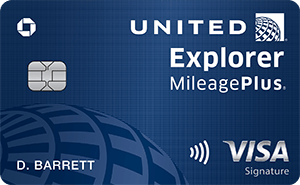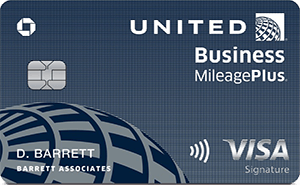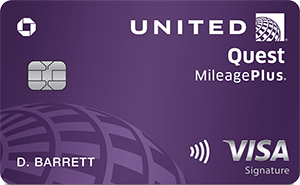What is United Status Worth in 2024?

Many or all of the products featured here are from our partners who compensate us. This influences which products we write about and where and how the product appears on a page. However, this does not influence our evaluations. Our opinions are our own. Here is a list of our partners and here's how we make money.
If you’re a new frequent flyer, you might be exploring the possibility of trying to earn United Airlines status. Or maybe you’re a multiyear MileagePlus Premier 1K flyer on a first-name basis with the gate agents at several airports, and you're wondering if status is worth it.
Do the benefits of United status outweigh occasionally taking a less convenient or more expensive flight? How do the benefits compare to other airlines?
Let’s explore the value of status with United as it currently stands.
United Silver is worth $1,743, earns 7x miles
The entry-level of United Premier Status is Premier Silver, which you earn upon completing 12 Premier Qualifying Flights and earning 4,000 Premier Qualifying Points (PQP) or by earning 5,000 PQP only. This status offers complimentary upgrades, complimentary access to Economy Plus seating at check-in for you and one companion and a free checked bag.
United Silver offers benefits that are in line with other airlines’ entry-level statuses, which typically include upgrades, early boarding and a free checked bag.
The program’s access to its extra-legroom seats, Economy Plus, is granted only at check-in and is slightly less generous than other airlines, but its same-day change benefit allows Premier members to change to any flight within 24 hours of their flight if the same fare class is available.
This is more generous than Delta Air Lines, which requires your same-day confirmed or standby flight be on the same calendar day.
United Gold is worth $4,868, earns 8x miles
Earn 24 PQF and 8,000 PQP, or 10,000 PQP only, and you will be granted Premier Gold status, the mid-tier status in the MileagePlus program. Premier Gold status offers higher-priority upgrades, an increased earning rate, two checked bags in economy and Star Alliance Gold status, which grants access to airport lounges when flying internationally on a Star Alliance flight.
Premier Gold status is notable for its access to Economy Plus seats. Once you get to mid-tier status, you can select Economy Plus at booking for you and one companion.
This is in line with American Airlines but beats Delta, which offers its extra-legroom seats as a space-available “upgrade” at 72 hours prior to departure and Alaska Airlines, which limits the fare classes that are eligible to access extra legroom seats.
United Premier Platinum is worth $8,982, earns 9x miles
At 36 PQF and 12,000 PQP, or 15,000 PQP only, you reach Premier Platinum status. Again, the boost in status comes with a boost in upgrade priority and your checked bag allowance. You also get access to Economy Plus seats for you and up to eight companions at booking.
At the high-tier status level, many airlines offer some form of upgrade certificate. United offers 40 flexible PlusPoints, which can be used toward upgrades on both domestic and international flights.
If you plan to use your PlusPoints to upgrade domestically, you probably would prefer Delta’s four regional upgrade certificates, which are offered at the Platinum level. But the 40 PlusPoints you receive with Premier Platinum can be used to upgrade most United Economy long-haul fares to one-way, including on partners Copa Airlines and Lufthansa German Airlines.
Still, those looking to book international travel would probably prefer choosing American’s systemwide upgrade as a Loyalty Choice Reward, as those certificates can be used anywhere American flies.
United Premier 1K is worth $18,963, earns 11x miles
Upon amassing 54 PQF and 18,000 PQP, or 24,000 PQP only, you will arrive at the highest tier of United Airlines frequent flyer status: Premier 1K. As a 1K member, you will be eligible for upgrades starting at 96 hours before your flight, and you’ll be among the highest priority on the upgrade list. You will also receive a free drink and snack in Economy, waived Clear membership fee, and waived fees for changing or canceling all award tickets.
At the highest tier of United status is where the upgrade benefits get the most generous. Members earning United Premier 1K will receive 280 PlusPoints in addition to the 40 earned as a Premier Platinum member.
You can use these 320 PlusPoints (280 for reaching Premier 1k, plus 40 for reaching Premier Platinum) for eight one-way international upgrades from economy to United Polaris business or four one-way international upgrades from discounted economy fares.
At the equivalent level of status, Delta will grant you up to four global upgrade certificates.
The value of United miles
If you are going to be pursuing United status, you might be wondering how much United miles are worth. The easy answer is that they are worth approximately 1.2 cents per mile toward main cabin travel, in the estimation of the experts here at NerdWallet. However, with selective use of your MileagePlus miles, you can typically extract more value from the program.
You can get even more value out of your United miles by looking at United program sweet spots and booking awards that match up with where the program offers the most value. Some great sweet spots include:
Short-haul economy flights.
Business class flights to Europe.
Round-trip flights to the Caribbean.
Flights from the U.S. to Tahiti.
Flights to Peru on United or Copa Airlines.
Finally, the most creative miles and points expert users will also consider how to use the United Excursionist Perk, which allows you to take a one-way flight for free as part of a multi-city trip. Depending on your itinerary and your use of the Excursionist Perk, you may be able to use your “free” one-way award to replace a relatively expensive flight.
» Learn more: How to maximize the United Excursionist Perk
How the value of United status compares to competitors
The value of United status is comparable to other legacy mainline carriers in the U.S., but this value will not be the same for everybody.
Our 2024 airline elite status analysis ranks United fairly high compared to its peers when it comes to overall elite status programs. It came in third place, tied with American Airlines and trailing Alaska and Hawaiian Airlines.
One of the biggest factors in how valuable United status is to you is relative to what is offered by other carriers where you live. If you live in Houston, a United Airlines hub, you can probably get more value out of United status than Delta or American status, simply by virtue of the number of flights United offers from its hub.
However, if you're at a United hub that is well-served by another carrier, like the New York City area, Washington, D.C., or San Francisco, another carrier’s program might offer more value to you.
» Learn more: Which airline elite status should you pursue?
Should I earn elite status with United this year?
Whether you should earn elite status with United this year is a personal decision that will hinge on your travel patterns, your perception of the value of perks like upgrades and how easily you can achieve your target status level.
You should consider how much time you have left to earn United Status this year, if you will get value out of the status by flying on United and its partners and how easily you can earn the points required to achieve status.
Will you get value out of the status?
The easiest way to answer this question is by considering your travel patterns and gauging how likely you are to fly on United and its airline partners. You won’t be able to enjoy the upgrades, baggage allowance, increased point earnings and other perks of United status if you are flying on Delta, American or Southwest. If you will be flying United often, read on.
If your travels have you flying on United only infrequently, another airline’s status might be a better fit.
Can you credit your flights to United Airlines?
One factor that will determine what level of United status you can earn is whether you can credit your air travel to United Airlines.
If you’re flying United every week within the U.S., this is pretty easy to figure out, but you can also earn status by flying on partner airlines. If you fly on one of the other 25 Star Alliance airlines, you can credit your flights to United MileagePlus toward your status. In addition to the airlines of Star Alliance, United also partners with 16 other worldwide partners that can help you earn status.
» Learn more: Your guide to the Star Alliance
Can you earn the Premier Qualifying Points?
Many U.S. airlines require elite members of their frequent flyer programs to spend a certain amount with the airline or its partners in order to maintain status, usually in addition to a requirement to fly a certain number of miles or segments. United takes a slightly different spin on this with its Premier Qualifying Points concept.
Can your credit card earning help you out?

If you are chasing United status, the answer is yes. If you hold a United MileagePlus credit card, you can earn additional PQP by spending on the card. The number of PQP you can earn on your credit card depends on which card you carry.
» Learn more: The best airline credit cards right now
Cards that earn 25 PQP for every $500 spent, up to 1,000 PQP in a calendar year:
Cards that earn 25 PQP for every $500 spent, up to 6,000 PQP in a calendar year
Cards that earn 25 PQP for every $500 spent, up to 10,000 PQP in a calendar year
Methodology
Value of each tier
To determine the value of each elite status tier, we considered those perks that carry a clear value, and we omitted luxury benefits (like dedicated phone lines) that do not. Specifically, we considered:
Bonus miles earned.
Bag fee offsets.
Premium seating upgrades.
First class upgrades.
Upgrade certificates.
Fee waivers.
Other individual program perks with clear value.
The table below explains these benefits as well as the assumptions we made in calculating their value.
Elite benefit | Explanation | Assumptions |
|---|---|---|
Bonus miles | The number of extra miles or points earned for this status tier. For example, Alaska MVP members receive 50% bonus miles. | The traveler will fly the number of miles needed to achieve this status tier, and the miles are worth the value that we estimate here. |
Bag fee offsets | The value of offset bag fees. | The traveler takes advantage of these offset bag fees every 10,000 miles flown. |
Premium seating upgrades | Complimentary upgrades to economy plus, economy comfort, etc. | The traveler is upgraded once every 2,500 miles, discounting those times they are upgraded to first class. We estimate the value of these upgrades at $50 apiece. |
First-class upgrades | Complimentary upgrades to first and business class. | We assume that higher elite tiers within a given program are more likely to be upgraded, with a maximum upgrade rate of 75% across all programs. We estimate the value of these upgrades at $200 apiece. |
Upgrade certificates | Complimentary upgrade certificates, such as American Airlines systemwide upgrades. | Since members can pick which flights receive upgrades for these, we peg them at a slightly higher value of $300 apiece. |
Fee waivers | The value of change/cancel fees that are offset from holding the status. | Travelers change or cancel one flight per 5,000 miles flown (i.e., 10 times for 50,000 miles flown). |
Other perks with clear value | Includes lounge membership, mile bonuses, etc. | — |
Cost of earning each tier
Airlines offer different thresholds for achieving each status tier, which can be broken into two categories:
Number of miles flown.
Other combination of factors, including elite qualifying dollars spent.
For No. 1, we will estimate the cost of achieving each tier as:
Number of miles needed to achieve tier multiplied by the median cost of flown mile (12 cents, per a separate analysis we conducted). For example, Hawaiian requires 20,000 flown miles for Gold status, so the cost of achieving this tier is 20,000 x $0.12 = $2,400.
For No. 2, we will estimate the cost of achieving each tier as:
Number of elite qualifying dollars divided by the fare-to-cost ratio. The fare-to-cost ratio is a percentage value that represents the average “base fare” to “total cost” of airfare (83% per our separate analysis). For example, AAdvantage Gold status requires $3,000 EQDs, so the cost of achieving this tier is $3,000 / $0.83 = $3,614.
If an airline requires a combination of Nos. 1 and 2, we used No. 2 as the cost of earning because this is usually more difficult to achieve. In other words, it's rare to hit a minimum spending requirement without hitting the mileage requirement.
How to maximize your rewards
You want a travel credit card that prioritizes what’s important to you. Here are our picks for the best travel credit cards of 2024, including those best for:
Flexibility, point transfers and a large bonus: Chase Sapphire Preferred® Card
No annual fee: Bank of America® Travel Rewards credit card
Flat-rate travel rewards: Capital One Venture Rewards Credit Card
Bonus travel rewards and high-end perks: Chase Sapphire Reserve®
Luxury perks: The Platinum Card® from American Express
Business travelers: Ink Business Preferred® Credit Card
on Chase's website
1x-2x
Miles50,000
Mileson Chase's website
1x-2x
Miles75000
Mileson Chase's website
1x-3x
Miles60,000
Miles




